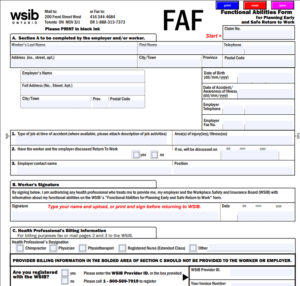Ensuring the well-being and support of employees during disability claims is not only a legal obligation for employers but also a fundamental aspect of maintaining a positive work environment.
When employees face disabilities or health conditions that require them to take leave or seek accommodations, it becomes imperative for employers to provide the necessary support and understanding. By implementing effective strategies to address employee well-being during disability claims, employers can foster an inclusive workplace culture, promote open communication, and offer reasonable accommodations.
This article aims to provide a brief guide for employers, outlining key steps and considerations to support employees during disability claims, ultimately leading to a more inclusive and supportive work environment.
Supporting employee well-being during disability claims is crucial for employers to ensure a positive work environment and maintain employee satisfaction.
Creating an Inclusive Workplace Culture for Disability Support
Foster a workplace culture that values diversity, inclusivity, and understanding.
Educate all employees about disabilities, creating awareness and reducing stigma. Conduct awareness programs or training sessions to educate employees about different disabilities and their impact on individuals’ lives.
Encourage open discussions about disabilities, allowing employees to share their experiences and perspectives.
Clear Disability Policies: Ensuring Employee Well-being
Develop clear policies and procedures that outline the process for handling disability claims.
Include information about how employees can initiate a claim, what documentation is required, and the steps involved in evaluating and implementing accommodations.
Clearly communicate these policies to all employees through handbooks, training sessions, or internal communications to ensure transparency and consistency.
Open Communication: Fostering Support for Employees on Disability
Create a safe and supportive environment that encourages open communication about disabilities.
Train managers and supervisors on how to approach conversations about disabilities and accommodations, emphasizing the importance of active listening and empathy.
Provide multiple channels for employees to share their concerns or ask questions, such as one-on-one meetings, anonymous suggestion boxes, or dedicated HR representatives.
Education and Training: Empowering Disability Support
Offer training programs to managers and supervisors on disability awareness, reasonable accommodations, and the legal obligations related to disabilities.
Educate employees about their rights and responsibilities when it comes to disability claims, including the process for requesting accommodations and the resources available to them.
Reasonable Accommodations: Enhancing Workplace Inclusivity
Engage in an interactive dialogue with employees to understand their specific needs and identify reasonable accommodations.
Consider a range of accommodations, such as flexible work hours, modified tasks, assistive technologies, accessible facilities, or additional support from coworkers.
Consult with medical professionals, occupational therapists, or disability experts, if necessary, to determine appropriate accommodations. IME’s (Independent Medical Evaluations) may be helpful in this regard.
Privacy and Confidentiality: Safeguarding Medical Information
Respect employee privacy by strictly adhering to laws and regulations regarding the handling of medical information.
Only share necessary information with individuals involved in the accommodation process, such as HR personnel or direct supervisors.
Store medical documentation securely and separately from other employee records.
Workload Adjustments: Supporting Employees’ Recovery
Recognize that employees on disability leave may have limitations or restrictions that affect their ability to perform certain tasks.
Collaborate with employees to determine if temporary adjustments to workloads, deadlines, or project assignments are necessary to support their recovery.
Consider redistributing tasks or temporarily assigning certain responsibilities to other team members.
Emotional Support: Nurturing Employee Well-being
Recognize that disability claims can be emotionally challenging for employees.
Offer emotional support through various means:
- Provide access to employee assistance programs (EAPs) that offer counseling or mental health services.
- Communicate the availability of mental health resources and encourage employees to utilize them.
- Foster a supportive work environment where coworkers are encouraged to show empathy and understanding.
Keeping Employees Informed: Communication during Disability Leave
Maintain regular communication with employees on disability leave to keep them informed about changes in the workplace, updates relevant to their situation, and their rights and responsibilities during the claim process.
Provide updates about their role, team activities, and any workplace changes that may impact their return.
Return-to-Work Programs: Smooth Transitions for Employees
Develop structured return-to-work programs to facilitate a smooth transition for employees returning from disability leave.
Collaborate with medical professionals, HR, and the employee to create a plan that gradually reintegrates the employee into their role, considering any necessary accommodations or modified duties.
Provide necessary training or resources to ensure a successful return to work.
Periodic Check-ins: Maintaining Support during Disability Leave
Stay connected with employees on leave through periodic check-ins.
This shows your continued support and helps identify any ongoing needs or concerns they may have.
Evaluating and Improving Disability Support Programs
Continuously assess your disability support policies and programs.
Seek feedback from employees who have gone through the disability claims process and make improvements based on their suggestions.
Remember, every individual’s circumstances are unique, so tailor your approach to meet each employee’s specific needs. By providing comprehensive support during disability claims, you can foster an inclusive and supportive work environment that promotes employee well-being.
Supporting employee well-being during disability claims is a critical responsibility for employers.
Employers can create a supportive environment that values the diverse needs of their employees, by:
- embracing an inclusive workplace culture
- establishing clear policies
- encouraging open communication
- providing education and training
- offering reasonable accommodations
- maintaining privacy, adjusting workloads
- providing emotional support
By implementing the strategies outlined in this guide, employers can not only meet their legal obligations but also contribute to the overall well-being, job satisfaction, and productivity of their workforce.
Fostering an environment of empathy, understanding, and proactive support, can make a significant impact on the lives of employees going through disability claims, creating a workplace that is both inclusive and supportive and benefits both employee and employer.
FAQs Related to Supporting Employee Well-Being During Disability Claims
Can an employer ask for medical documentation during a disability claim?
Yes, employers may request medical documentation to verify the need for disability leave and assess the appropriate accommodations or support required. However, employers must handle this information with strict confidentiality and adhere to privacy laws.
How long can an employee take disability leave?
The duration of disability leave may vary depending on the nature of the disability, applicable employment laws, and company policies. Typically, the length of leave is determined by medical professionals and can range from a few weeks to several months.
What are the responsibilities of an employer during an employee’s disability leave?
Employers are responsible for maintaining regular communication with the employee on leave, providing updates on workplace changes, and discussing the employee’s return-to-work plans. They should also ensure that any necessary accommodations are in place and support the employee’s transition back to work.
Can an employer terminate an employee on disability leave?
Employers generally cannot terminate an employee solely because they are on disability leave. Termination during disability leave may be considered discriminatory and can lead to legal consequences. However, if there are legitimate reasons unrelated to the disability, termination may be possible following proper procedures.
What resources are available for employers to educate themselves about supporting employees during disability claims?
Employers can access various resources such as government websites, industry-specific publications, human resources associations, and disability management organizations. These sources provide guidelines, best practices, and case studies to help employers navigate the process effectively.
Are employers required to provide accommodations for employees with disabilities?
Yes, employers have a legal obligation to provide reasonable accommodations for employees with disabilities, as long as doing so does not cause undue hardship. Accommodations can include modifications to the workspace, flexible schedules, assistive technologies, or reassignment of certain tasks.
How can employers ensure confidentiality when handling medical information during disability claims?
Employers should establish strict protocols to safeguard medical information. Only designated personnel with a legitimate need to access such information should handle it, and it should be stored securely separate from other employee records. Compliance with privacy laws, such as HIPAA, is essential.
Can an employee request an extension of disability leave if their condition worsens?
Yes, if an employee’s medical condition worsens during their disability leave, they can request an extension. Employers should engage in a dialogue with the employee, review medical documentation, and assess the need for additional leave or accommodations.
Can an employer require employees on disability leave to provide updates on their condition?
Employers may request periodic updates from employees on disability leave to stay informed about their progress and expected return-to-work timeline. However, employers must respect employee privacy and ensure that the requested updates are relevant and necessary.
How can employers support employees’ mental health during disability claims?
Employers can offer resources such as employee assistance programs (EAPs), counseling services, and access to mental health professionals. Promoting a supportive and inclusive work environment and reducing stigma around mental health issues can also contribute to employees’ overall well-being.
Remember, it is important to consult with legal professionals or human resources experts to ensure compliance with applicable laws and regulations regarding disability support in your specific jurisdiction.






